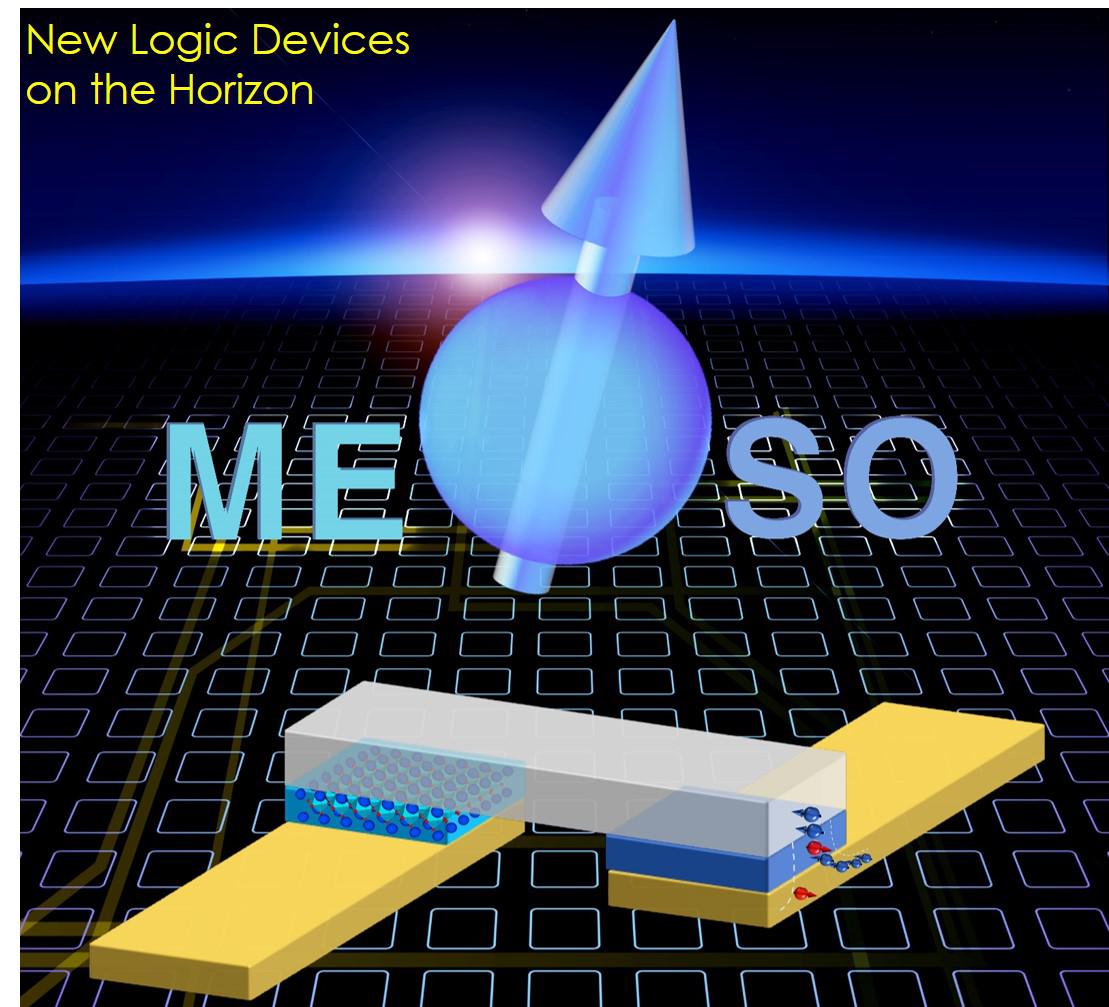Today, “Nature” published a research paper on the next generation of logic devices authored by researchers from Intel, the University of California, Berkeley, and the Lawrence Berkeley National Laboratory.
The paper describes a magneto-electric spin-orbit (MESO) logic device, invented by Intel. MESO devices have the potential to lower voltage by 5 times and energy by 10-30 times when combined with ultralow sleep state power, as compared to today’s complementary metal-oxide-semiconductors (CMOS). While Intel is pursuing CMOS scaling, the company has been working on computing logic options that will emerge in the next decade for the beyond-CMOS era, driving computing energy-efficiency and allowing performance to grow across diverse computing architectures
“We are looking for revolutionary, not evolutionary, approaches for computing in the beyond-CMOS era. MESO is built around low-voltage interconnects and low-voltage magneto-electrics. It brings together quantum materials innovation with computing. We are excited about the progress we have made and are looking forward to future demonstrations of reducing the switching voltage even further toward its potential.”
–Ian Young, Intel Senior Fellow and director of the Exploratory Integrated Circuits group in the Technology and Manufacturing Group
Why it Matters: Intel researchers invented the MESO device, with the memory, interconnect and logic requirements of future computing needs in mind. The MESO device was prototyped at Intel using quantum materials with emergent quantum behaviors at room temperature, with magneto-electric materials developed by Ramamoorthy Ramesh at UC Berkeley and the Lawrence Berkeley National Laboratory. MESO also utilizes spin-orbit transduction effects described by Albert Fert at Unité Mixte de Physique CNRS/Thales.
“MESO is a device built with room temperature quantum materials,” said Sasikanth Manipatruni, senior staff scientist and director of Intel Science and Technology Center on Functional Electronics Integration and Manufacturing. “It is an example of what is possible, and hopefully triggers innovation across industry, academia and the national labs. A number of critical materials and techniques are yet to be developed to allow the new type of computing devices and architectures.”


